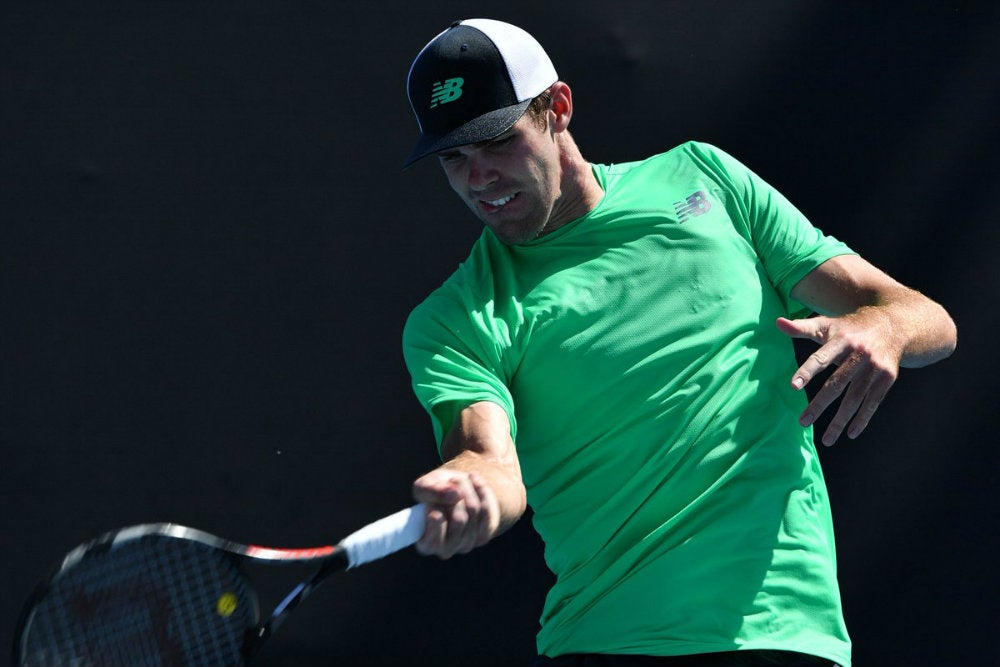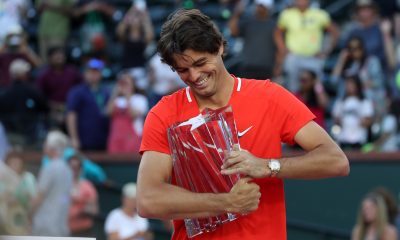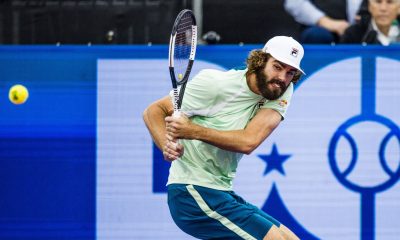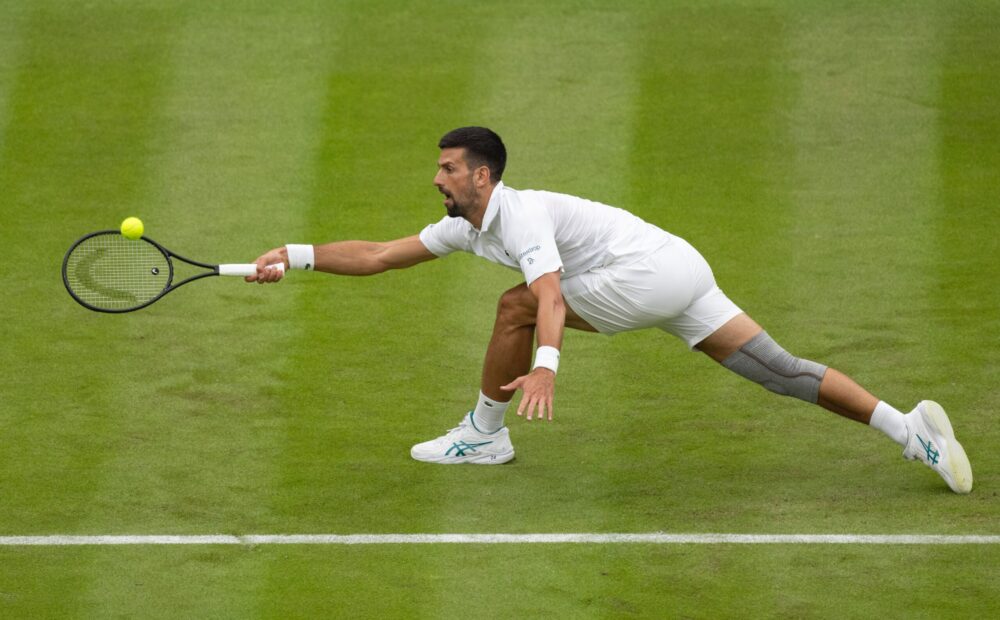By Art Spander
WIMBLEDON, England — Stan Wawrinka, a Grand Slam winner, took his tennis defeat by an American with grace. Unlike the way The Sun, the tabloid, took England’s soccer defeat by America.
This was the day after, some 24 hours of regret for England’s team, beaten Tuesday night, 2-1 — or as The Sun printed it, 1-2 — by the United States in the semifinal of the Women’s World Cup.
This also was the day of success, Reilly Opelka of Florida upsetting Wawrinka, 7-5. 3-6. 4-6. 6-4, 8-6, Wednesday in a Wimbledon second-round match.
“He went bigger than me,” Wawrinka said, a statement that, since Opelka is 6-foot-11, could be taken literally. “And he deserved to win.”
So did the U.S. women’s team, albeit the way at least one American player, Alex Morgan, celebrated after her goal, America’s second, mimicking someone sipping tea, was unneeded.
In the United Kingdom they call instant replay VAR, or video assistant referee, and it was a replay that showed England was offside when scoring the apparent tying goal with eight minutes remained in regulation time.
Then the low penalty kick by England’s Steph Houghton was grabbed by goalie Alyssa Naeher to preserve the victory.
Or as the headline in The Sun put it, “LIONESSES LOSE TO V.A.R.MERICA”
Some clever people there, if some disenchanted ones. In The Sun, Martin Lipton called Houghton’s penalty kick “awful.” Hey, they did get to the semis, interestingly the same stage the men’s team reached in the 2018 men’s World Cup.
How far Opelka can go in this Wimbledon debut is problematical, especially because in the next round he faces Milos Raonic, who also has a huge serve and was also a finalist here three years ago.
Still, an another American male who actually can win tennis matches — the way American women win soccer matches — is to be appreciated.
Not that you expect to see him on a tennis court instead of a basketball court. And so Opelka, an inch shorter than 7 feet, was asked quickly enough, “Why are you here and not in the NBA?”
Without hesitation, Opelka responded, “Good question.”
To which the 21-year-old could only answer, “I wish I was. I regret it every day. And yeah, that’s pretty much all I’m going to say.”
Other than basketball is his favorite sport, other than tennis, which now is his profession. “I don’t play (basketball) much anymore,” he said. “When I’m home I shoot every day. I go to the court and play all the time. But like I never played serious or anything.”
The 6-foot-9 John Isner, who’s been on the tennis tour more than a decade, was a Wimbledon semifinalist last year; he’s often said if as a kid he knew how tall he’d become, his choice would have been hoops. Opelka beat Isner in the first round of this year’s Australian Open.
The man has an advantage serving and a disadvantage returning. It was Isner who was locked into that 11-hour, three-day match against Nicolas Mahut at Wimbledon in 2010, Isner winning 70-68 in the fifth set, when each player hit serves that couldn’t be returned.
Wawrinka, an even 6 feet, who has won the Australian, French and U.S. Opens, was asked if tennis would become the domain of the really big guy, such as the one who whipped him, Opelka.
“Against the big server, you’re not going to have a lot of chances,” said Wawrinka, “but no I don’t think. We’ve been thinking that for 10 years. But no, I don’t think we’re going in that direction.”
Who knows what direction Opelka is going, but beating a Grand Slam champ, even though Wawrinka is now 34, is hardly unimpressive.
“I had to adjust a lot,” said Opelka. “My mind was always thinking, especially after I lost the third set. He was in every return game.
“I played the big points really well on my serve, and that’s what good players do. They find other ways to win that you’re not always comfortable with.”
Comfortable and uncomfortable, as Opelka pointed out, don’t matter.
As they say in golf, it isn’t how; it’s how many or how much. Opelka had as much as he needed. Just as the night before, the U.S. women soccer team had as much as it needed.
Note: story posted from http://artspander.com with permission from the author.

 Hot Topics3 days ago
Hot Topics3 days ago
 Latest news3 days ago
Latest news3 days ago
 Hot Topics2 days ago
Hot Topics2 days ago
 Hot Topics3 days ago
Hot Topics3 days ago
 Focus2 days ago
Focus2 days ago
 Focus2 days ago
Focus2 days ago
 Focus2 days ago
Focus2 days ago
 Hot Topics2 days ago
Hot Topics2 days ago




























